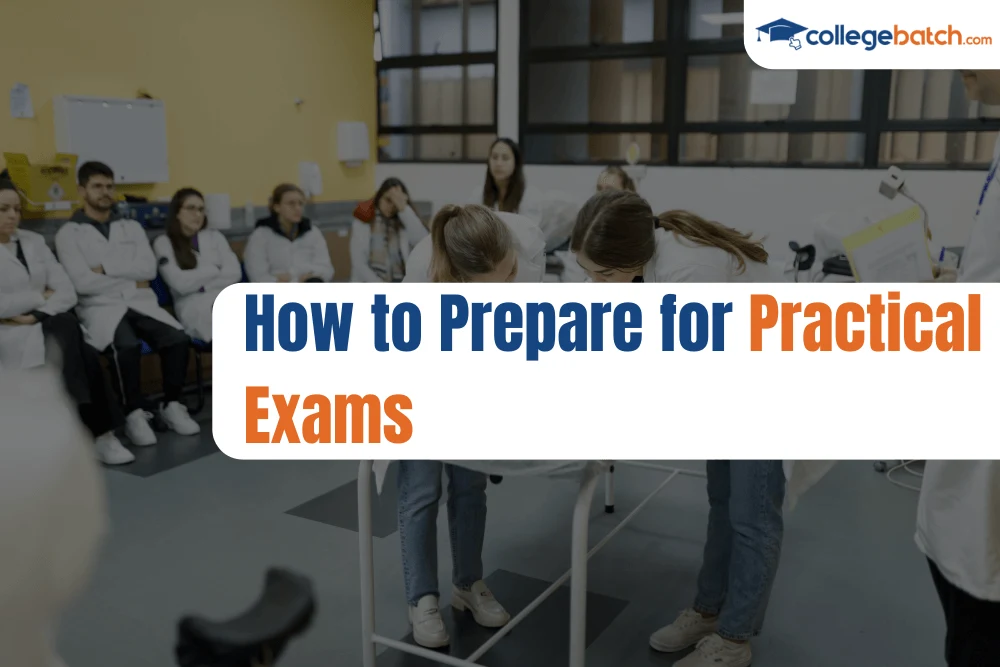How to Prepare for Practical Exams
by ago 74 views0

When the exam season begins, most students struggle to efficiently prepare for practical exams. These exams are essential for the complete assessment of a student’s overall conceptual knowledge. To productively prepare for these, it is necessary for the students to attend the classes, complete the manuals, thoroughly grasp the concepts, and so on.
Students often get confused about what is a practical exam and how can they prepare for it? This blog presents the essential tips required to effectively prepare for practical exams.
Contents
What is a Practical Exam?
Practical examinations are assessments that are designed to test the theoretical knowledge of students in practical states where they are required to either perform experiments, show processes or help an equipment function. Practical exams are conducted to train students to apply theoretical concepts to the real world. As nowadays the job recruiters usually prefer hands-on experience rather than textbook knowledge.
Tips to Prepare for Practical Exams
There are few practices that are helpful in practical exam preparation. Some such tips are listed-below:
1. Being Consistent
One missed lecture can cost a lot when it comes to proper conduction of practicals. It is important to attend practical classes regularly to not miss any detail that might make students lose their marks in future. Therefore, being present in class and actively making notes is the first and the most crucial step to prepare for practical exams.
2. Clarity of Concepts
In order to effectively prepare for practical exams, it is essential to ensure that all the theoretical concepts are crystal clear. The theories hold the basic principles which form the foundation of any procedure, experiment or operation. Thus, making sure to understand the core fundamentals of theories helps in the correct execution of the practical.
3. Thorough Scanning of the Manual
One successful way to prepare for practical exams is to carefully understand the steps and rules. A lot of times students do not pay attention to the data available in the lab manual which provides essential guidelines for the operation of the experiments. Going through the manual thoroughly before the conduction ensures that no detail is skipped and all the rules are followed.
4. Being Familiar with the Equipment
Practical exams often require students to operate on certain equipment that are designed to carry out particular kinds of experiments. Hence, identification of the right equipment and knowing all the parts along with their use and operational methods are the key to ace a practical exam.
5. Accuracy in Measurement
While conducting an experiment it is necessary to take the right amount of compounds that will be a part of the process. Inaccurate measurements lead to false or unstable results, making the student lose marks. Therefore, right proportions of the elements are important for accurate results. On that account, it is necessary to know how to take the correct measurements during the practical exam preparation.
6. Being on Time
Efficiently handling the time during the conduction of the practical is crucial as some steps in some procedures require monitoring of time. Failing to do that might lead to failure in gaining the right result. It is also vital to keep the time in check and divide the tasks accordingly to avoid rushing in the end of the demonstration.
7. Practise
One of the best ways to prepare for any exam is to practise consistently. Practise ensures accuracy and makes the students confident. Practical exams preparation can be a challenging task but with the right mindset and excellent study tactics, it can be made easy and can be aced positively.
Also Check:How to Prepare for Entrance Exam (Tips and Tricks)
Wrap Up!
Exam times can be stressful; be it theory or practical exams. So, in order to prepare for practical exams in an effective way, it is important to follow the right approach. With the intention to effectively prepare for the practical exams and achieve the desired outcome, students can follow some tips like being regular in classes, aware of the equipment as well as measurements of the materials used, efficiently managing the time, and the list goes on with several others.
